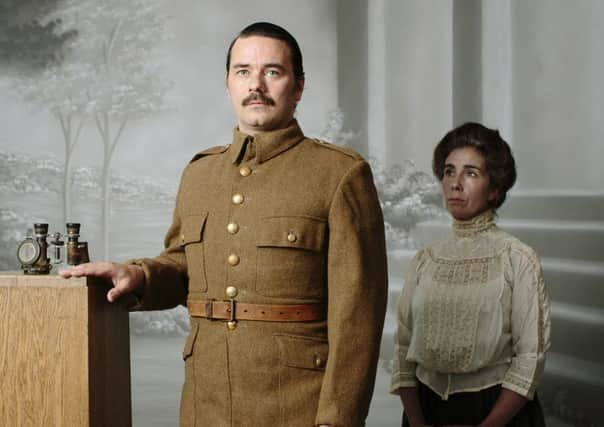Joyce McMillan: Eden Court’s vital role


Yet despite its annual £5 million budget – which makes it one of the largest theatre organisations in Scotland, surpassed only by the National Theatre of Scotland and the King’s and Festival Theatres trust in Edinburgh – Scotland’s most northerly large-scale theatre is often overlooked in public discussion about the Scottish arts scene, in terms both of its actual performance, and its huge potential.
Since it reopened in 2007 after an extensive refurbishment, Eden Court has one large 840-seat theatre, one smaller 250-seat theatre, two small but excellent cinemas, and two studios, as well as a bar and restaurant, and conference and function space. The theatre offers a jam-packed programme, ranging from daytime educational activities – Eden Court runs the largest theatre-based arts education programme in the UK, with team members all over the Highlands, and is the only theatre actually to teach Higher Dance and Drama – through large-scale and small-scale theatre, classical music, opera and ballet, to blockbuster musicals like Hairspray (due to visit in March), the beloved annual panto produced with commercial company Imagine, and a thriving cinema programme, including this weekend’s Inverness Film Festival.
Advertisement
Hide AdAnd although it mainly functions as a receiving theatre, Eden Court is gradually becoming a stronger presence in production. Earlier this autumn, it produced Philip Howard’s touring production of Not About Heroes; and it has also co-produced David Gooderson’s Hector, about the disgraced Highland military hero General Sir Hector MacDonald, appearing at the Traverse next week.
It’s therefore not surprising that an audience member recently told Colin Marr, the theatre’s chief executive since 1997, that Eden Court was like “all the theatres, cinemas, and concert halls in Edinburgh rolled into one, with just a little bit of each of them”; and it’s easy to see how this massive programme – straddling not only the commercial and subsidised sectors, but also very different scales of work, and most art-forms within the subsidised arts – makes it difficult for the theatre to project a clear image of its work beyond Inverness, where it has become an essential part of the cultural and entertainment landscape, with few competitors.
Questions remain, inevitably, about how Eden Court might move forward in future, and how – beyond its much-admired educational work – it can best use the £1 million of public money it receives. Could it invest more than its current £45,000 or £50,000 a year in producing new work? Could it open up a strand of new work for children created by its multi-talented education team, who already produce a hugely popular Christmas show for tiny tots? Could it perhaps, at some point, afford to produce its own home-made Highland panto? And could it – should it – develop a more closely-integrated and mutually supportive relationship with the Highland Touring Network, which brings professional theatre and music to community venues across the region, rather than simply competing with them for the best small-scale shows?
For the time being, though, it’s steady as she goes on the banks of the Ness, where the Eden Court operation is thriving and growing as never before. And whatever decisions are eventually made about its future, the theatre’s current success in earning more than 60 per cent of its income at the box office forms a strong basis for those choices; and gives Eden Court the potential to play an ever more creative role in the life of the Highlands, a region already rich in grassroots cultural life, and capable of becoming steadily richer.
• For Eden Court programme detailssee www.eden-court.co.uk; Hector is at the Traverse, Edinburgh,11-12 November, and on tour.